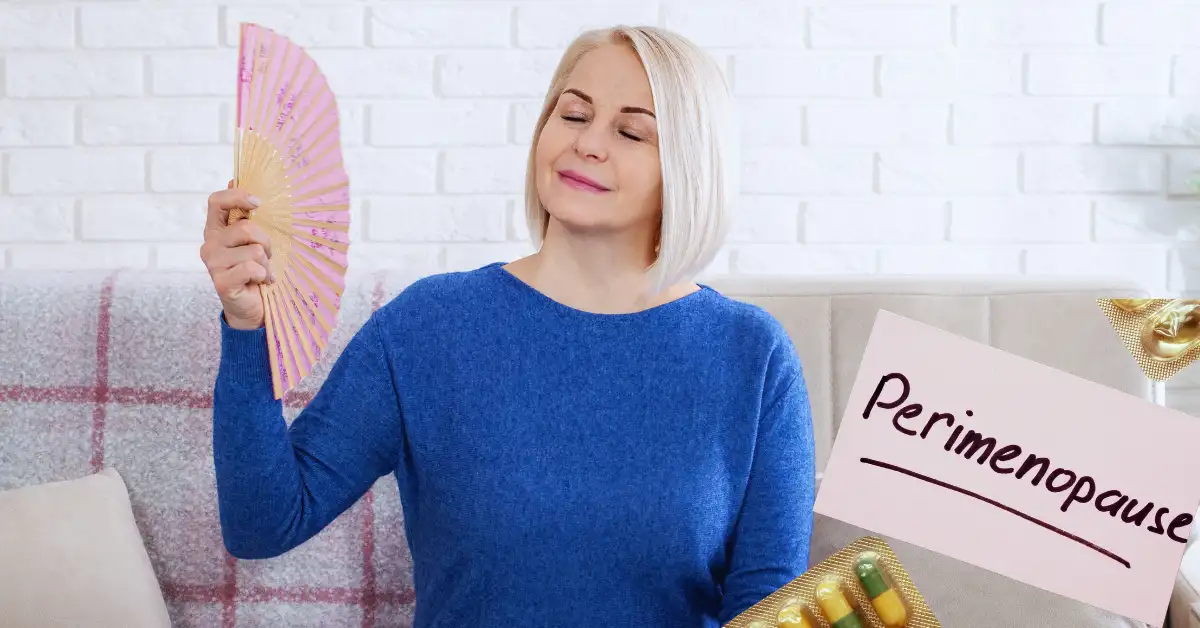Perimenopause is a significant phase in a woman’s life, marking the transition from reproductive years to menopause. As you navigate this journey, it’s essential to recognize the signs that indicate the end of perimenopause. In this article, we’ll explore the key indicators that suggest you’re approaching the final stages of this transformative period.
Key Takeaways
- Perimenopause typically starts in a woman’s 40s and is characterized by hormonal changes and various symptoms.
- Signs of perimenopause ending include decreased frequency of hot flashes, return to regular menstrual cycle, and improved mood.
- Recognizing these signs can help women better understand and adapt to the changes in their bodies.
What Is Perimenopause?
Perimenopause is the time leading up to menopause when the body undergoes hormonal changes. This phase usually begins in a woman’s 40s and can last several years.
During perimenopause, the production of estrogen and progesterone fluctuates, leading to a range of symptoms such as irregular periods, hot flashes, mood swings, and sleep disturbances.
Common Symptoms of Perimenopause
Before diving into the signs that indicate the end of perimenopause, let’s recap the common symptoms experienced during this phase:
- Irregular periods
- Hot flashes and night sweats
- Mood swings and emotional instability
- Sleep disturbances and insomnia
- Vaginal dryness and discomfort
- Changes in libido
These symptoms can vary in intensity and duration for each woman, making the experience unique to every individual.
Signs Of Perimenopause is Ending
1. Decreased Frequency of Hot Flashes
One of the most prominent signs that perimenopause is ending is a noticeable decrease in the frequency and intensity of hot flashes. As your body adjusts to the hormonal changes, you may find that these sudden feelings of heat and sweating become less frequent and more manageable. This reduction in hot flashes can bring a sense of relief and comfort.
2. Return to Regular Menstrual Cycle
Another significant indicator that perimenopause is coming to an end is a return to a more predictable and regular menstrual cycle. During perimenopause, periods often become irregular, with varying lengths and heavy or light flow.
As you approach the end of this phase, your cycle may become more consistent, with a similar length between periods. This regularity signifies that your body is settling into its new hormonal balance.
3. Improved Mood and Emotional Well-being
Mood swings and emotional instability are common experiences during perimenopause due to hormonal fluctuations. As perimenopause draws to a close, you may notice an improvement in your overall mood and emotional well-being.
The hormonal shifts begin to stabilize, leading to a more balanced emotional state. You may find yourself feeling more even-tempered and better equipped to handle everyday stressors.
4. Resolution of Sleep Disturbances
Sleep disturbances, such as insomnia or night sweats, are often associated with perimenopause. As this phase nears its end, you may notice an improvement in the quality and duration of your sleep.
The frequency of night sweats may decrease, allowing for more restful and uninterrupted slumber. Getting better sleep can have a positive impact on your energy levels, cognitive function, and overall well-being.
Other Signs and Indicators
In addition to the main signs discussed above, there are a few other indicators that perimenopause may be ending:
- Decrease in vaginal dryness: As hormones stabilize, vaginal lubrication may improve, reducing discomfort and increasing sexual satisfaction.
- Increase in libido: Some women may experience a renewed interest in sex as perimenopause comes to an end, thanks to hormonal balance and reduced symptoms.
It’s important to remember that every woman’s experience is unique, and these signs may vary in timing and intensity.
Also Read: Does Ashwagandha Make You Horny?
Conclusion
Recognizing the signs that perimenopause is ending can help you better understand and navigate this transformative phase. By paying attention to changes in your menstrual cycle, hot flashes, mood, sleep patterns, and overall well-being, you can identify when you’re approaching the end of perimenopause and the beginning of menopause.
Remember, perimenopause is a natural part of a woman’s life journey. Embracing the changes and taking steps to support your physical and emotional health can make this transition smoother and more manageable. Feel free to consult your healthcare provider for personalized guidance and support regarding any concerns or questions you may have.
FAQs
A: Perimenopause can last anywhere from a few months to several years, with an average duration of four years, according to the National Institute on Aging.
A: Yes, although fertility decreases during perimenopause, it’s still possible to conceive until you’ve gone 12 months without a period, which marks the onset of menopause.
A: While many symptoms improve as perimenopause ends, some may persist into menopause. Hot flashes, for example, may continue for some women.
A: Lifestyle changes such as regular exercise, a balanced diet, stress management, and avoiding triggers can help manage symptoms. Hormone therapy and other medications may also be options, as per the Office on Women’s Health.

